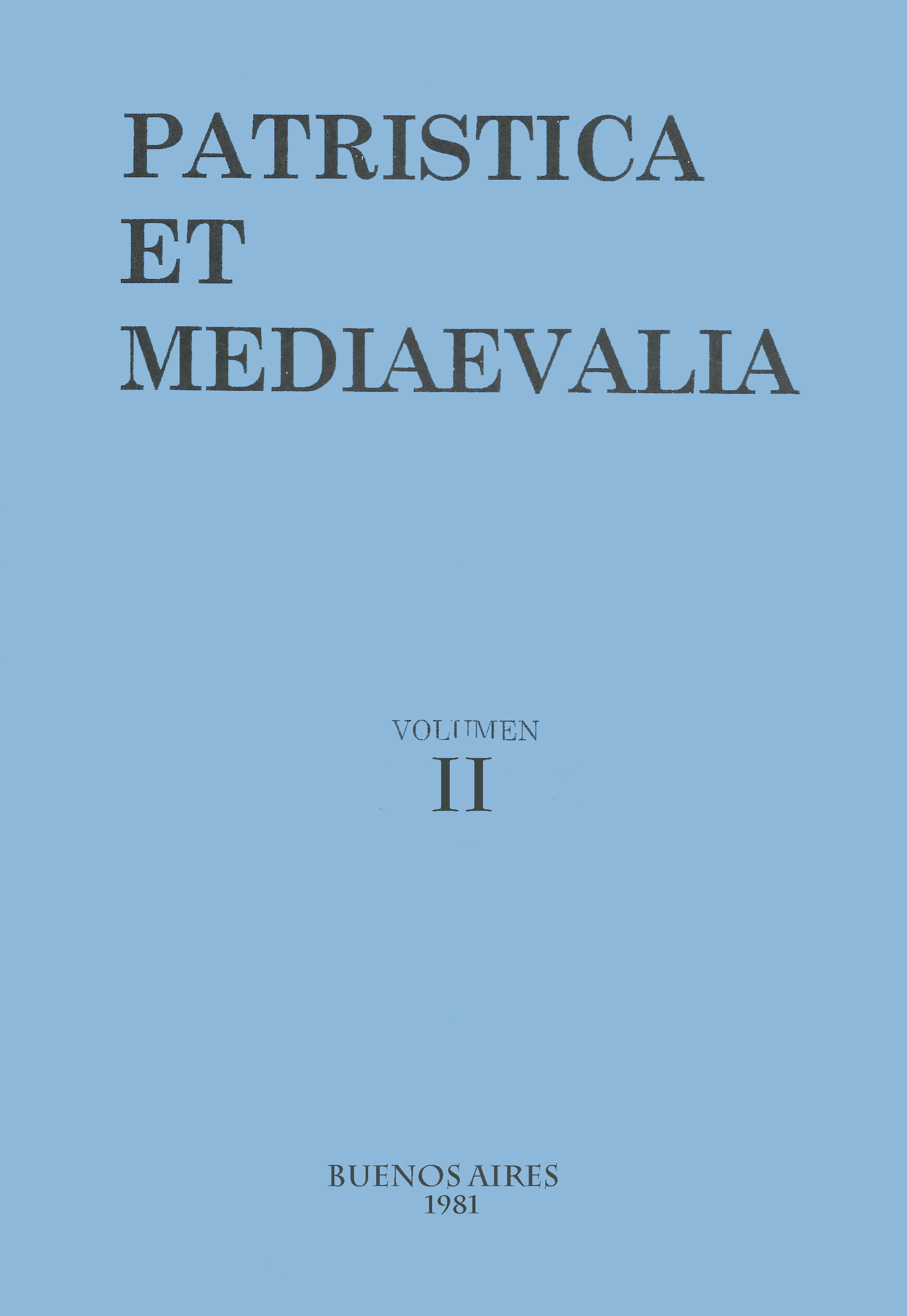Saint Bonaventure with regard to Aristotelism
Abstract
Saint Bonaventure's position as contrasted to Aristotelianism has been as from E. Gilson's thesis an object of discussion. Historical data, however, allow to assert that the great Franciscan authority: 1) intended to work out no philosophical system; 2) adopted a position which was neither in favour of nor against Aristotle; 3) to a certain extent, his attitude towards philosophy may be regarded as indifferent; 4) he always referred to philosophy in relation to his theological and pastoral purposes. The knowledge he had of Aristotle's work did not surpass the notions and readings common to any 13th century university student and for this reason he would no participate in the Aristotelian debates of the time. However, and facing a possible risk of heresy, he lively defends what he considers the orthodox doctrine.Downloads
References
Bonafede, G. (1974). Introducción al estudio de San Buenaventura. Augustinus, 19(75-76), 49-68.
Bougerol, J. G. (1963). S. Bonaventure et la sagesse chrétienne. Paris: Ed. Du Seuil.
Bougerol, J. G. (1973). Dossier pour l’étude des rapports entre saint Bonaventure et Aristote. Archives d'Histoire Doctrinale et Littéraire du Moyen Age, 40, 135-222.
Capánaga, V. (1974). La mediación de Cristo en la filosofía de San Agustín y San Buenaventura. Augustinus, 19(75-76), 69-113.
De Andrés, t. (1974). ‘Itinerarium mentis in Deum’ o ‘Reductio artium ad theologiam’? (En torno a dos interpretaciones de la filosofía de San Buenaventura. Pensamiento, 30, 307-318.
Gilson, E. (1924). La philosophie de saint Bonaventure (Études de philosophie médiévale, IV). Paris: Vrin.
Ménard, A. (1973). L’intelligence exhaussée de la foi selon les Collationes VII à XI in Hexaemeron. Études Franciscaines, 23, 297-318.
Moretti-Costanzi, T. (1974). El ‘intellectus fidelis’ en el agustinismo de S. Buenaventura. Augustinus, 19(75-76), 145-161.
Muñoz-Alonso, A. (1974). San Buenaventura y la filosofía. Augustinus, 19(75-76), 163-176.
Oros Reta, J. (1974). San Buenaventura, Aristotelismo y agustiniano. Augustinus, 19(75-76), 177-188.
Robert, P. O.F.M. (1950). Le problème de la philosophie bonaventurienne 1/2. Laval Théologique et Philosophique, VI, 145-163.
Robert, P. O.F.M. (1951). Le problème de la philosophie bonaventurienne 2/2. Laval Théologique et Philosophique, VII, 9-58.
Valderrama Andrade, C. (1974). Filosofía ejemplarista, Acercamiento al pensamiento de San Buenaventura. Franciscanos, 16, 160-168.
Van Steenberghen, F. (1966). La philosophie au XIIIe siècle (Philosophies médiévaux, IX). Louvain: Publications universitaires / Paris: Béatrice-Nauwelaerts.
Wénin, CHR. (1960). La connaissance philosophique d’après saint Bonaventure. En L’homme et son destin, d’après les penseurs du Moyen Age: actes du Premier Congrès international de philosophie médiévale, Louvain-Bruxelles, 28 août-4 septembre 1958. Louvain: Nauwelaerts, 485-494.
1. The authors who publish in this magazine accept the following conditions:
-
They retain the copyright and grant to the magazine the right of the first publication, with the work registered under the Attribution-ShareAlike 4.0 International License that allows third parties to use what is published as long as they mention the authorship of the work and the first publication in this magazine.
-
They can make other independent and additional contractual agreements for the non-exclusive distribution of the version of the article published in this magazine (eg. include it in an institutional repository or publish it in a book) provided that they clearly indicate that the work was first published in this journal.
-
They are allowed and recommended to publish their work on the Internet (for example on institutional or personal pages).
2. AutoArchive Conditions. Authors are allowed and encouraged to distribute post-print electronic versions of their manuscripts because it promotes their circulation, a possible increase of quotation and a major reach among the Academic community. Color RoMEO: blue.













